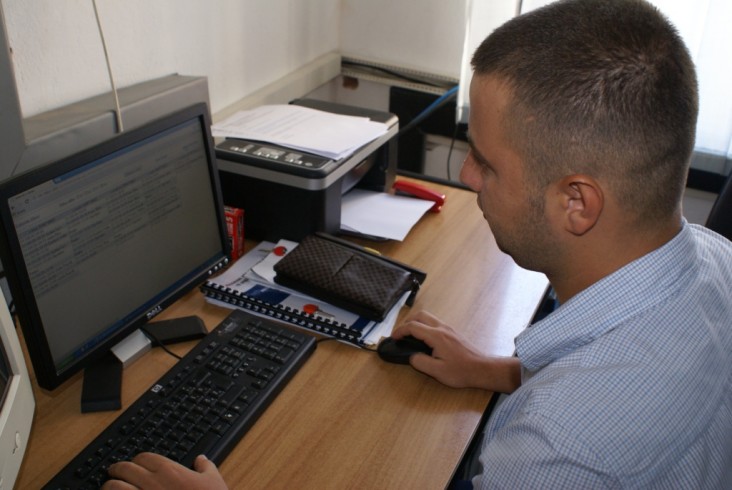
If a courtroom is not scheduled for use, chances are it will not be used. USAID conducted a study in April 2011 to investigate the extent to which courtrooms in Albania’s two largest courts were being used. The study found that in the Durrës District Court, over 16% of the four available courtroom time slots had no sessions scheduled, and the resulting actual use was no more than 22% of the time available. Tirana fared even worse. Instead of holding sessions in court, judges were convening them in their offices. This undercut the solemnity, dignity and authority of the proceedings, and restricted public access due to space constraints in offices. This in turn fuels the already pervasive public perception of a corrupt judiciary that operates behind closed doors.
While the lack of sufficient courtrooms is certainly an impediment, judges interviewed as part of the USAID study revealed that the most significant factor underlying the practice of holding sessions in offices is judges’ inability to access information about when courtrooms are available for use. To respond to this problem, USAID worked with Albanian court leaders to develop PAKS, a centralized on line courtroom calendar management system.
“In Durrës, all 24 judges would like to have their sessions in courtrooms, but before PAKS, the session secretary had to physically visit them before the scheduled session in order to find out if any one was available,” said Judge Joana Qeleshi. With PAKS, judges and court staff can see in real time which courtrooms are free and when. The new software also enables users to view and monitor the courtroom calendar for each judge.
“To schedule a session, we used to have to fill out a form for each court manually,” explains session secretary Henri Hatillari. “Now we have the PAKS on line session calendar installed on all computers, so no more double bookings or empty time slots. It’s very easy, so in less than one week from installation, everyone was using PAKS. If you need the session schedule for any given period, you just click and print.” he says.
The success of PAKS has resulted in demand for its installation in all courts in Albania, and the Albanian Ministry of Justice is now looking to add PAKS to the court’s electronic case management system. The ease in scheduling coupled with the flexibility in reporting and monitoring have proved to be a valuable instrument in USAID efforts to promote effective and transparent courtroom management.







Comment
Make a general inquiry or suggest an improvement.